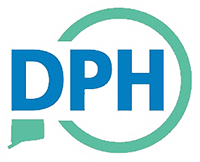FOR IMMEDIATE RELEASE: Aug. 19, 2024
CONTACT: Chris Boyle, Director of Communications
(860) 706-9654 – christopher.boyle@ct.gov
HARTFORD, Conn.— The Connecticut Department of Public Health (DPH) is issuing this document to provide an overview of best practices to ensure the safety of residents affected by the severe and sudden rainfall that impacted Connecticut. over the weekend—particularly in the western portion of the state.
In a statement issued Sunday night, Governor Ned Lamont stressed that “If anyone needs emergency assistance, they should call 9-1-1. For all other, non-emergency questions, people can call 2-1-1 to get directed to the resources they need. We are urging all municipal officials in the impacted areas to continue coordinating with their Department of Division of Emergency Management and Homeland Security (DEMHS) regional coordinators on any requests for assistance.”
Public Drinking Water Systems
- DPH monitors for potential impacts to public drinking water systems during storm responses.
- Residents that experience any changes to the color or pressure of their water should contact their water system.
Food Safety
- DPH assists local health departments by providing them with information for food service establishments.
- Food establishments that have lost power or have been flooded should contact their local health department. The local health department will provide guidance on practices to follow to ensure the safety of foods and food contact surfaces. They will also work with them on what steps need to be taken to reopen, once safe to do so. Food service establishments should not reopen without approval from the local health department.
- Throw out any food, including emergency supplies, that may have come into contact with floodwater. Discard canned foods that are bulging open, or damaged. Food in undamaged cans can be saved if properly cleaned.
- For information regarding food safety during power outages and floods please see:
- Food Facts - Food and Water Safety During Power Outages and Floods (fda.gov)
- Seguridad alimentaria y del agua en caso de apagones eléctricos e inundaciones (fda.gov) Food Facts in Spanish
- For the Public: A Consumer's Guide to Food Safety: Severe Storms and Hurricanes | Food Safety and Inspection Service (usda.gov)
Resources
General Safety Advice during Floods
- Floodwater can be dangerous and can contain contaminants that can harm health, so they should be avoided.
- If you must enter floodwater, wear rubber boots, rubber gloves, and goggles.
- Wash your hands thoroughly and often.
- Exposure to contaminated floodwater can cause wound infections, skin rash, gastrointestinal illness, tetanus, and other health problems.
- If you happen to have an open wound during a flood, make sure to avoid floodwater by keeping wounds clean and covered.
Tips for reducing standing water and mosquitos around homes
- Eliminate standing water suitable for mosquitoes. Dispose of water-holding containers, such as ceramic pots, used tires, and tire swings.
- Drill holes in the bottom of containers such as those used for recycling.
- Clean clogged roof gutters.
- Turn over objects that may trap water when not in use, such as wading pools and wheelbarrows.
- Clean and chlorinate swimming pools. When pools are not in use, use pool covers and drain when necessary.
Mold Prevention
- Homes or businesses that have significant water damage are likely to experience mold growth. Exposure to mold can trigger asthma and cause respiratory symptoms. To prevent mold growth, residents are encouraged to take the following precautions:
- Dry out the affected area quickly, as the sooner you do so, the easier it will be to manage the mold.
- Discard all porous items that are saturated with water as they cannot be salvaged.
- Once standing water has been removed, use a dehumidifier and fans to dry out wet items.
- Mold can be a health risk. If possible, air out the building by opening doors and windows. Position fans to blow air outdoors or windows.
- Use proper protective gear such as safety glasses, gloves, and N95 respirator when removing mold.
Private Wells
- Private wells in areas where flooding has occurred can become contaminated. Changes in water taste, color, or odor can be an indication of contamination from flooding. Your well may be at high risk of contamination if there is standing water over the location of your well.
- If you are concerned that your well has been contaminated, get the water tested and use bottled water for drinking and cooking until the test results have been returned and any issues have been corrected by a professional.
- For more information on flood and storm water concerns for private well water systems, please see this fact sheet about flood and storm water concerns for private water systems.
-30-


